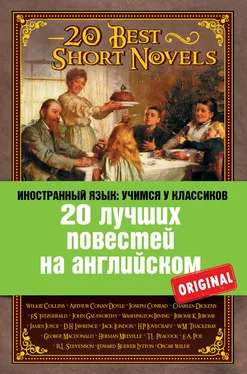‘Zitti, zitti, piano, piano, Non facciamo confusione,’ – Be quiet, keep silent to avoid confusion… ( Italian )
facezia – a joke, witticism ( Italian )
Nina pazza per amore – Nina, mad with love ( Italian )
Bath – a city in southwestern England in the county of Somerset, a health resort with springs of mineral water located along the Avon River
Cheltenham – a town in the county of Gloucestershire, first mentioned in 1223
N’est-ce pas?= Isn’t it? ( French )
De Juillet= in July ( French )
heterodox – heretical
Jeremy Taylor(1613–1667) – an English writer and an Anglican clergyman
entre nous= between you and me ( French )
Lucifer – in Christianity, the name of Satan, the prince of evil forces, before his fall
très posément – here: very firmly ( French )
Dante – Dante Alighieri (1265–1321), a great Italian poet, philosopher and thinker, the author of ‘The Divine Comedy’
Don Giovanni – a famous opera by Wolfgang Amadeus Mozart (1756–1801), one of the greatest composers in the history of music
Mount Athos – a holy mountain in northern Greece, where twenty Greek Orthodox monasteries are located
a priori, a posteriori, a fortiori – (a way of thinking) 1) from cause to effect; 2) from effect to cause; 3) on a more convincing argument
Cadiz – a city and port in Andalusia, in southwestern Spain, founded in 1100 BC
Saint Peter – the Apostle of Jesus Christ; before becoming Christ’s disciple, he was a fisherman
Asturias – a historic region in Spain
Tiberius(42 BC–37 AD) – the second Roman emperor who in his last years became a tyrant
cui bono= what for?
belles lettres= fiction ( French )
sirocco – warm wind in southern Europe and over the Mediterranean Sea, originating over North Africa
Parnassus – a mountain in central Greece, in Greek mythology and religion, a sacred place
Berkeley – George Berkeley (1685–1753), an Anglican bishop and an English scientist and philosopher of Irish origin
hyloists – another name of millenarians
esse= to be ( Latin )
percipi= perceive; n perception ( Latin )
the Severn – the longest river in Britain flowing from Wales to the Atlantic Ocean
the Wye – a river in England and Wales
Plinlimmon – Plynlimon, a ridge in central Wales, eastward to the Rivers Severn and Wye
Macedon – an ancient kingdom of the Helenic Age on the Greek peninsular
Monmouth – a historic county in southeastern Wales
Toutesti (Greek) , id est( Latin ) , cioè( Italian ) , c’est à dire( French ) mean ‘that is.’
Odyssey – an epic poem by Homer; Odysseus, the main character of the poem, is a man of outstanding courage, wisdom and endurance.
Euclid(2nd century BC) – the most prominent mathematician and geometer of Greco-Roman antiquity
Genius Loci – the atmosphere of the place ( Latin )
tutela= patron ( Latin )
Hesperian – related to the Hesperides, in Greek mythology, maidens who guarded the tree with golden apples
comme il faut – properly, in a proper way ( French )
toute autre chose – quite differently ( French )
Hic non bibitur! – One doesn’t sing here! ( Latin )
Minerva – in Roman mythology, the goddess of handicrafts and arts
Neptune – in Roman mythology, the god of fresh water and sea
Bacchus – in Greek mythology, the god of wine and ecstasy
Socrates(470 BC–399 BC) – the greatest Greek philosopher who exerted profound influence on philosophy of all time
Brutus(85 BC–43 BC) – the Roman general who took part in the assassination of Julius Caesar in 44 BC
Cassius – Gaius Cassius, one of the assassins of Julius Caesar
Milton – John Milton (1608–1674), an English poet, the author of the famous ‘Paradise Lost’
kalos kagathos= kind and good ( Greek )
Athenians – residents of Athens
Rosicrucian – a member of a worldwide secret brotherhood and a follower of teaching that combines esoteric wisdom, mysticism and religious beliefs and practices of the past
sylph – in medieval folklore, an imaginary soulless mortal being that lives in the air
Helen – in Greek mythology, the most beautiful woman of her time, the cause of the Trojan War
Zeuxis(5th century BC) – one of the best known artists of ancient Greece
Crotona – an ancient town in southern Italy, founded by the Greeks about 710 BC
Tullia – Cicero’s daughter
tendresse= tenderness ( French )
Sacre – cochon – bleu! – Damn! ( French )
Читать дальше
Конец ознакомительного отрывка
Купить книгу












